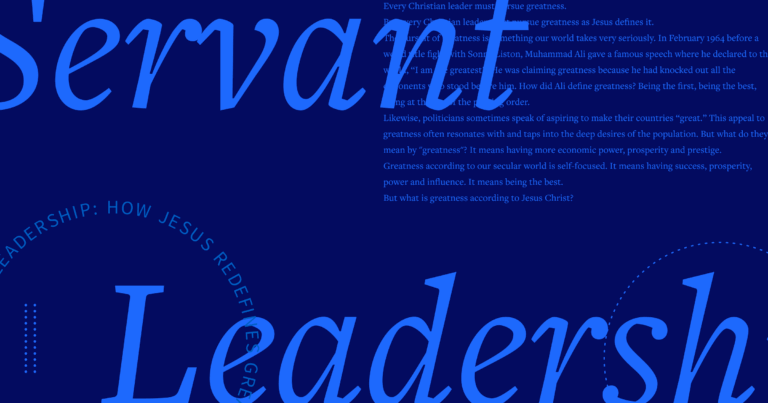Psalm 139 is a precious psalm, emphasizing the basics of God’s relationship to His children. In the first six verses, David says (to paraphrase), “God knows me intimately”; in verses 7–12, “God is with me constantly”; and in verses 13–18, “God has made me wonderfully.” Verses 19–22, however, strike what might sound like a discordant note. This section almost seems out of place. Of the twenty-four verses in the psalm, there’s no question most would regard these four as the most difficult. Having praised God for His provision in verses 1–18, David then prays for God to judge the wicked: Oh that you would slay the wicked, O God! In order for these verses to make sense, we must read them within the context of the entire psalm (not to mention all of Scripture). God is so precious to David that he finds those who speak against God as intolerable. The principle is simple: When a person’s world is full of God, like David’s was, he will long for the elimination of evil. Like how a father is filled with anger toward those who take advantage of his child, so David despises those who rebel against the Lord. From Psalm 139 we can gather several principles for helping us read the psalms of judgment in the Bible. First, we should note that in these verses, David directs his words to God. The picture is not of the enthroned king shouting at his subjects but of a humble man bringing his burden as a petition to the King of kings. More specifically, this psalm is an imprecatory prayer. An imprecation is a curse. These psalms express how all opposition to God’s magnificent holiness will one day be destroyed. In a word, they are prayers for divine vengeance, based in God’s own promise of the same. That these psalms are in the Bible at all makes some embarrassed. In an effort to explain them away, we might be tempted to play the Old Testament against the New Testament, saying, “The God of the Old Testament is one of wrath; Jesus in the New Testament is full of grace. You won’t find anything like these cursing psalms in the Gospels or Letters.” But a closer look at the New Testament proves otherwise. Jesus, for example, curses the hypocritical Pharisees of His day in Matthew 23:33: “You serpents, you brood of vipers, how are you to escape being sentenced to hell?” Or Paul, writing to the churches in Galatia, warns, “If anyone is preaching to you a gospel contrary to the one you received, let him be accursed” (Gal. 1:9). Imprecatory prayers are a feature of both the Old Testament and the New. At the same time, the Bible expressly forbids personal vengefulness. Christians are Deuteronomy 32:35 people, entrusting all vengeance against evil into God’s hands. (Importantly, Paul even references this verse in Romans 12:9, applying the Old Testament principle to New Testament Christians.) In affirming both of these truths, there is a balance to achieve. On one hand, we pray with David that God would judge the wicked. On the other, we also entrust that judgment to God alone. Since vengeance belongs to God, these prayers for judgment are not a program for David—or any of us, for that matter—to implement. David, like us, longs for a day when wickedness will be destroyed. But he refuses to take matters into his own hands. Despite the many privileges David enjoyed as king and the many opportunities he had to exact violence against his enemies, he did not do it. Walter Kaiser described the character of David’s enemies in 1 and 2 Samuel as “the culmination and final fruit of all falsehood, greed, hate, cruelty, and treachery aimed against the very means of their own salvation.” Men like Doeg, Cush, and Ahithophel hated David, rejecting God’s anointed king and saving promises. The fact is that David saw evil for what it is: evil. He hated it “with complete hatred.” If we’re honest, it’s difficult to give a voice to that kind of expression without mixing it with personal animosity. But God’s Word stands. These words are a prayer to be prayed without being a program for exacting personal revenge. They are also to be prayed with the knowledge and hope that the wicked can, by God’s grace, still turn and be saved as long as there is breath in their lungs. Christians reading the imprecatory psalms face a twofold predicament. First, we can be confused in our thinking. Perhaps part of the reason we hesitate to pray like David did is because we find it distasteful to confront sin. If we aren’t careful, we can let cultural clichés rather than biblical principles dictate our worldview. Modern Christian in the West, for instance, has grown comfortable with the saying “Love the sinner, hate the sin.” It sounds nice—but does it square with how David prayed in Psalm 139? He knew he lived in a world in which evil abounds. For him, evil was not an abstract concept; evil revealed itself in the hearts and lives of individuals. He did not distinguish between the sin and the person committing the sin. There’s no doubt that we are to have compassion on those who are stranded in their sin. At the same time, we must bring our thinking about sin and sinners under the jurisdiction of the Bible. It is simultaneously true that God’s wrath is revealed against all sin and that God’s love extends to guilty sinners (John 3:16, 35). That we are confused in our thinking is compounded by a second problem: We can be compromised in our living. We can fail to see how truly evil evil is, recoiling from God’s judgment. Like the frog in the kettle that doesn’t realize the water is coming to boil, we can slowly drift into an increased tolerance of the practices that God condemns in His Word. The psalm’s concluding verses commend a posture of humility. Having called on God to judge the wicked in verses 19–22, David then submits himself to divine scrutiny. He doesn’t confine his attack to the evil around him; he faces up to the evil that is within him: Search me, O God, and know my heart! “Search me. Try me. Check for sin in me,” David prays. He acknowledges what we must also confess: In our hearts are the seeds of all appalling evil. If we are to pray as David did, then we must look not only at the sinfulness around us but also to the sinful tendencies that live inside us. We need God’s help to read and to pray the psalms of judgment with pure hearts. Perhaps we would do well to make Paul’s expression of praise our own prayer: Oh, the depth of the riches and wisdom and knowledge of God! How unsearchable are his judgments and how inscrutable his ways! “For who has known the mind of the Lord, or who has been his counselor?” “Or who has given a gift to him that he might be repaid?” For from him and through him and to him are all things. To him be glory forever. Amen. (Rom. 11:33–36) This article was adapted from the sermon “God Judges Righteously” by Alistair Begg.
O men of blood, depart from me!
They speak against you with malicious intent;
your enemies take your name in vain.
Do I not hate those who hate you, O LORD?
And do I not loathe those who rise up against you?
I hate them with complete hatred;
I count them my enemies. (Ps. 139:19–22)The Psalms of Judgment Are Prayers
All opposition to God’s magnificent holiness will one day be destroyed.
The Psalms of Judgment Are Not Programs
The Psalms of Judgment Reveal Humanity’s Problem
It is simultaneously true that God’s wrath is revealed against all sin and that God’s love extends to guilty sinners.
The Psalms of Judgment Must Be Read with Humility
Try me and know my thoughts!
And see if there be any grievous way in me,
and lead me in the way everlasting! (Ps. 139:23–24)In prayer, we must not look only at the sinfulness around us but also to the sinful tendencies that live inside us.
Copyright © 2025 , Truth For Life. All rights reserved.
Unless otherwise indicated, all Scripture quotations are taken from The ESV® Bible (The Holy Bible, English Standard Version®), copyright © 2001 by Crossway, a publishing ministry of Good News Publishers. Used by permission. All rights reserved.












 English (US) ·
English (US) ·